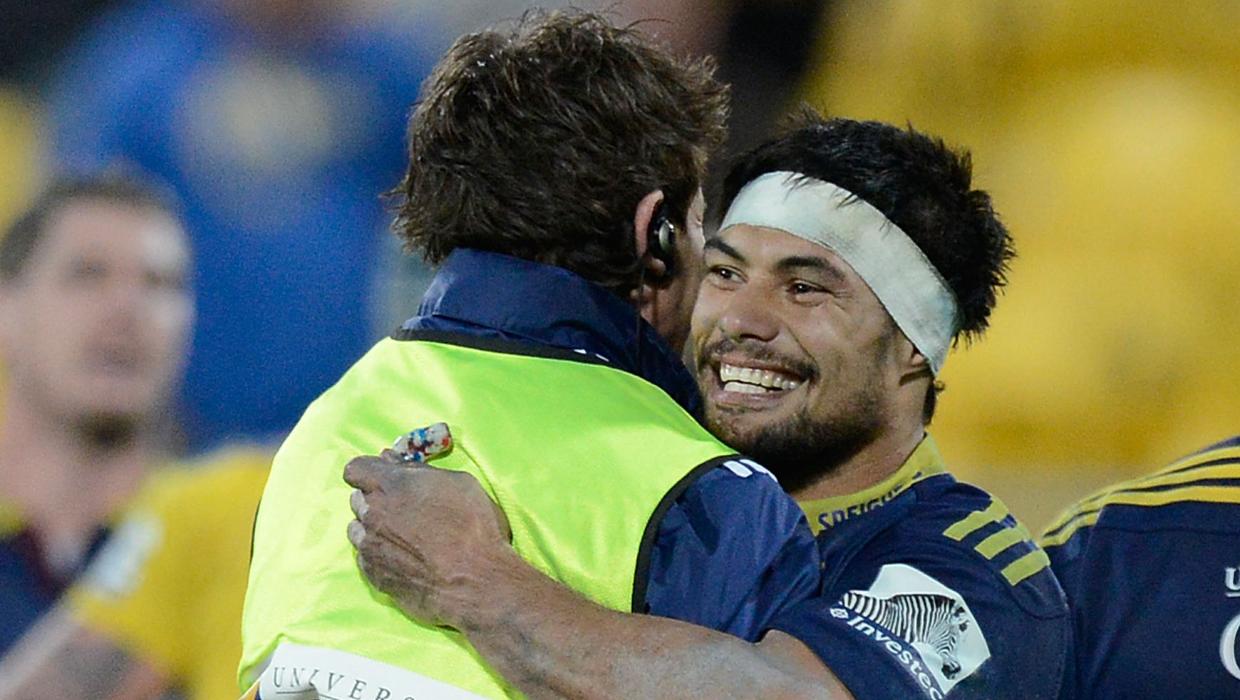Sports
World Rugby Faces Backlash Following Shane Christie’s Tragic Death

The death of former rugby player Shane Christie has ignited a fierce backlash against World Rugby, with former Welsh international Alix Popham accusing the organization of having “blood on their hands.” Christie, who passed away earlier this month, was known for his contributions to the sport and his commitment to raising awareness about the long-term effects of head injuries in rugby. His untimely death has raised pressing questions about player safety and the responsibility of governing bodies.
Popham, who has been vocal about his own health struggles related to rugby, criticized World Rugby for its handling of issues surrounding concussion protocols and player welfare. In a statement, he expressed deep concern over the apparent lack of action taken to protect players from the dangers of chronic traumatic encephalopathy (CTE), a degenerative brain disease linked to repeated head trauma. “It’s time for World Rugby to stop ignoring the evidence and take real action,” Popham declared, emphasizing the urgent need for reform.
Calls for Accountability and Change
The tragic loss of Christie has galvanized support from the rugby community and beyond. Advocates for player safety are now demanding that World Rugby implement stricter regulations regarding head injuries. The International Rugby Players Association has also weighed in, urging the sport’s governing body to prioritize player health and safety by revising its concussion protocols.
Popham’s comments reflect a growing sentiment among former players who feel that the sport’s governing bodies have not done enough to address the risks associated with rugby. Many are calling for comprehensive research into the long-term effects of head injuries and greater transparency regarding player health data.
As the conversation surrounding player safety intensifies, the pressure is mounting on World Rugby to take decisive action. In the wake of Christie’s death, the organization faces scrutiny over how it manages the risks associated with the sport, particularly as more players come forward with similar health concerns.
In the broader context of rugby, the issue of player safety is not new. High-profile cases of CTE among former players have led to lawsuits and increased awareness of the long-term impacts of concussions. The rugby community is now looking to World Rugby to lead the way in prioritizing player welfare above all else.
Moving Forward: A Call to Action
The death of Shane Christie serves as a tragic reminder of the risks inherent in contact sports. As discussions around player safety continue, advocates urge World Rugby to embrace a proactive approach. This includes not only revising existing protocols but also investing in research that can help reduce the incidence of head injuries.
Popham’s passionate plea highlights a critical turning point for the sport. Players, fans, and stakeholders alike are calling for a future where the health of athletes is paramount. With the eyes of the rugby world focused on World Rugby, the coming weeks and months will be pivotal in shaping the conversation around player safety and the sport’s commitment to protecting its players.
As rugby continues to evolve, it is clear that the lessons learned from tragedies like Shane Christie’s death must not be forgotten. The community is united in its demand for lasting change, hoping to prevent such tragedies from occurring in the future.
-

 World3 months ago
World3 months agoTest Your Knowledge: Take the Herald’s Afternoon Quiz Today
-

 Sports3 months ago
Sports3 months agoPM Faces Backlash from Fans During Netball Trophy Ceremony
-

 Lifestyle3 months ago
Lifestyle3 months agoDunedin Designers Win Top Award at Hokonui Fashion Event
-

 Sports3 months ago
Sports3 months agoLiam Lawson Launches New Era for Racing Bulls with Strong Start
-

 Lifestyle3 months ago
Lifestyle3 months agoDisney Fan Reveals Dress Code Tips for Park Visitors
-

 Health3 months ago
Health3 months agoWalking Faster Offers Major Health Benefits for Older Adults
-

 World3 months ago
World3 months agoCoalition Forms to Preserve Māori Wards in Hawke’s Bay
-

 Politics3 months ago
Politics3 months agoScots Rally with Humor and Music to Protest Trump’s Visit
-

 Top Stories3 months ago
Top Stories3 months agoUK and India Finalize Trade Deal to Boost Economic Ties
-

 World3 months ago
World3 months agoHuntly Begins Water Pipe Flushing to Resolve Brown Water Issue
-

 Entertainment3 months ago
Entertainment3 months agoExperience the Excitement of ‘Chief of War’ in Oʻahu
-

 Science3 months ago
Science3 months agoNew Interactive Map Reveals Wairarapa Valley’s Geological Secrets









